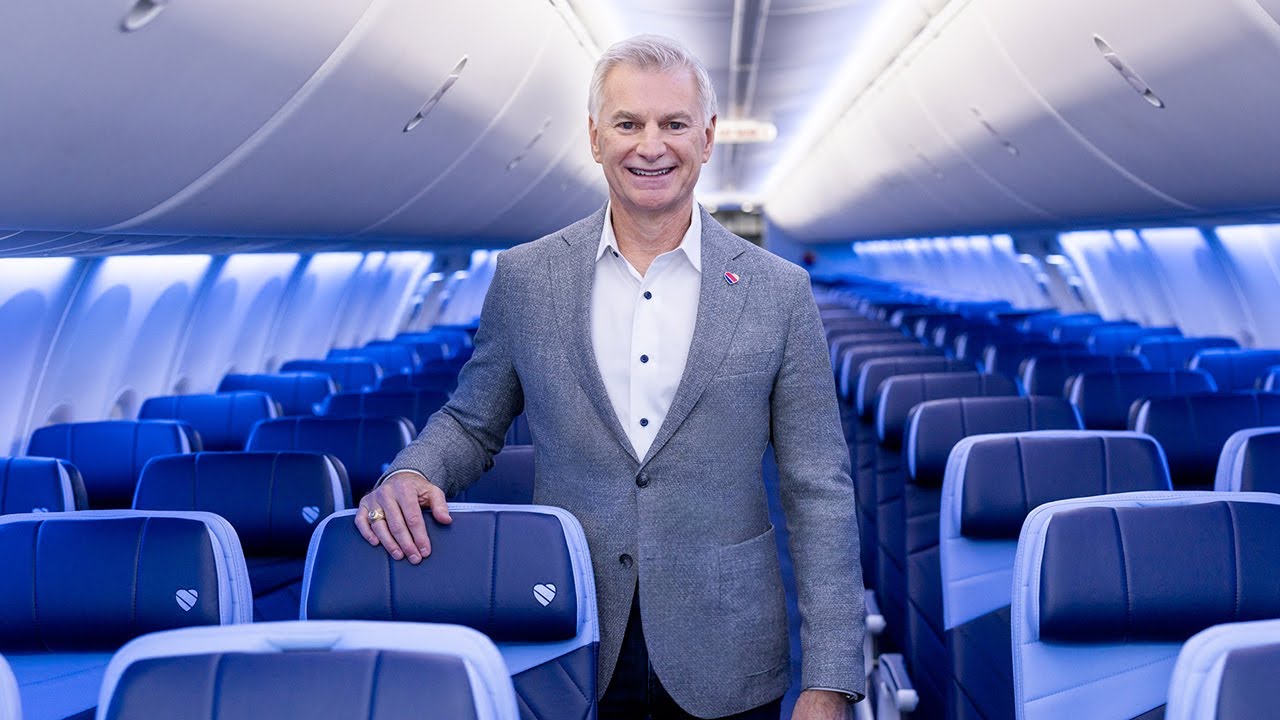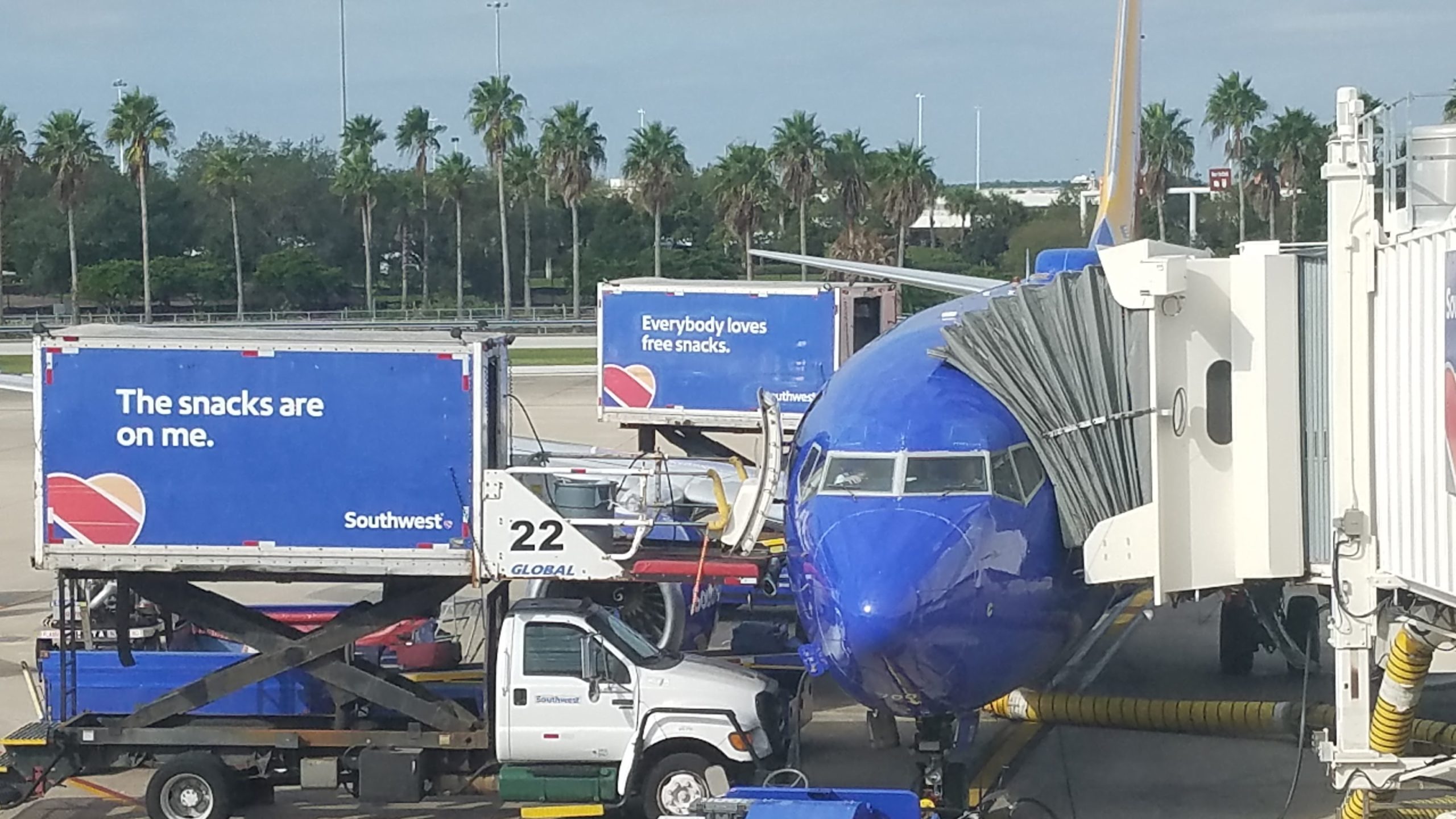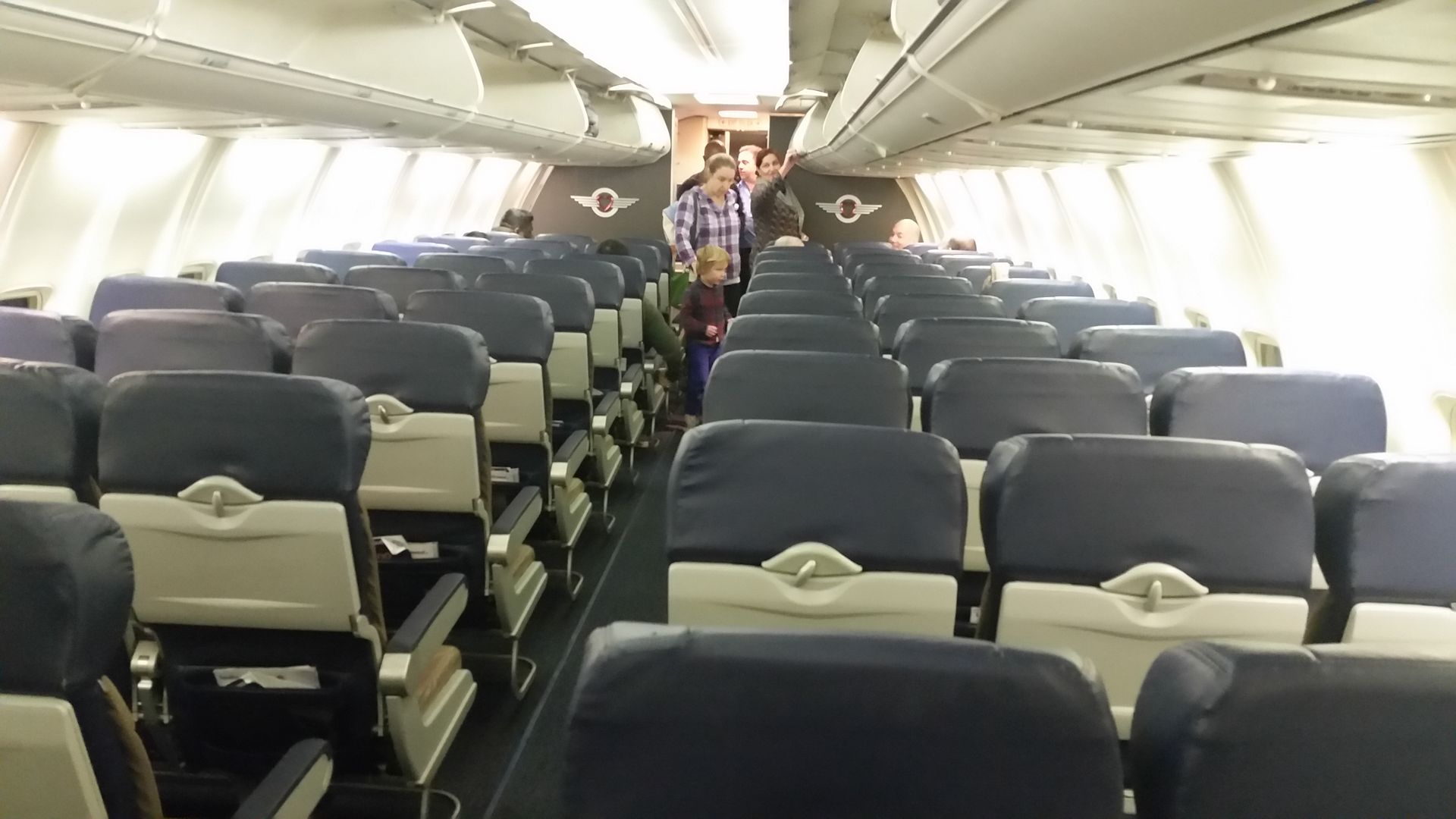“I’m Totally Making This Up”: CEO of Rudderless Southwest Airlines Floats First Class And Long-Haul Flights
Southwest Airlines used to have a clear idea of who they were. They had a theory of the business. They did things differently than the rest of the industry to offer inexpensive and friendly service to the customer, flying mostly out of inexpensive airports and using a single plane type in order to keep costs down. They would fly short flights that brought people off the roads and into the skies.
That’s all changed. They now have basic economy fares, expiring flight credits and charge for checked bags. They’re going to be charging for seats assignments, and selling extra legroom seats. They’ll have boarding groups instead of lining everyone up. And they’ve devalued their points.

Southwest’s CEO Bob Jordan, though, spoke at the Bernstein Strategic Decisions Conference and claimed that what they’re doing is low risk precisely because everyone else does it, too.
[T]here is low risk because we’re putting in things that the industry has done forever. So there’s low risk implementation, there’s low risk in the financial benefit paying-off.

To be clear, there’s little risk to embattled executives when they copy everyone else. It’s not their plan that’s wrong, it’s factors outside their control.
But there’s tremendous risk to Southwest to eliminate their unique selling proposition, which was precisely that they were different, to copy financial underperformers like American Airlines and JetBlue.
Jordan, though, says he’s not done. He’s going to chase whatever the customer wants, instead of advancing a theory of the customer and how to best meet their needs. And that could mean a true first class, it could mean flying long haul. With Southwest Heart dead, there is no longer a True North at the company.
[W]e aren’t stopping here. So putting in the things that I’ve described isn’t the end of the journey for Southwest. We will continue to pursue the consumer. And if the consumer wants other types of premium, they want us to fly other long-haul destinations, which could lead to aircraft questions. I’m totally making all this up. This is not a plan. But the consumer demand in certain cities for us for a lounge is super high. My point is rather than say, no Southwest Airlines does not do that. You must follow the consumer or if you are forever vulnerable to others that can offer that to the consumer.
…even there in Nashville and in Austin as an example, people love us, but we also can’t — for many of our folks that love Southwest, we can’t do things that — we can’t provide products that you want like a first class, we can’t get you to long-haul international destinations. If a lounge is important to you, we don’t have a lounge. I’m not predicting any of those things. What I’m telling you is rather than be forever vulnerable, we’re going to follow the consumer and what the consumer needs.

The key takeaway here shouldn’t be ‘Southwest Airlines is considering first class, widebody aircraft, and long haul flying.’ Instead it should be Southwest has no idea who they are, and no way to evaluate competing ideas anymore.
The truth is that Southwest’s old model has likely gone as far as it could. After racking up 47 straight years of profits, even through 9/11 and the Great Recession with low costs, a simple operation and customer-friendly policies, they’re:
- No longer a low cost carrier. They don’t have the Gary Kelly fuel hedges anymore and have expensive contracts with pilots, flight attendants and other work groups. Headquarters staff grew.
- Lacking long haul flying and partnerships. Southwest takes you to the biggest domestic markets but can’t sell tickets to Europe or other worldwide destinations that customers want to fly. And they don’t benefit from the tickets foreign airlines are selling to their customers. A passenger from Asia can’t land in Los Angeles and transfer on the same ticket to a Southwest flight, or from Europe in New York. That’s a lot of business lost.
- Not serving small markets bringing connecting feed to their larger planes. With nothing smaller than a Boeing 737 they can’t serve the markets that other airlines reach with regional jets. Those passengers then can’t flow through the rest of Southwest’s route network.
- Missing premium products. Customers have increasingly wanted more room and other conveniences, and Southwest hasn’t had anything to offer those passengers. This also cashes out in fewer high income customers than legacy airline peers (less desirable credit card). And they still don’t have this – they’re adding extra legroom seats but aren’t even planning to sell blocked middle seats.
- Failing to market flights to the customer. Southwest had largely sold tickets through their own channels only. They didn’t sell where so many customers were at online travel agencies. That meant they sold most of their tickets to locals in cities that had strong Southwest brand awareness, and knew to go to their website, but not as many in smaller markets they flew to. Instead of an even balance of passengers on both ends of a route, Southwest was missing customers in those smaller markets.
This meant customers didn’t directly compare prices, which was great since Southwest generally doesn’t offer the lowest fares… but they also didn’t sell restrictive basic economy tickets and they included free checked bags with every fare.
Once the Biden administration rule requiring fares be shown comparing all-in costs with various fees got struck down in the courts, Southwest’s only path to being price-competitive reaching customers beyond their own channels was to price like everyone else.

Southwest had a great model until it wasn’t one anymore. They couldn’t keep growing without changes, and won’t ever return to their historic lower costs. They needed to abandon simplicity for growth, but that complexity means greater costs too.
That means Southwest was never going to be Southwest again, even with employees who largely don’t hate their jobs. Covid accelerated changes in the market. Activist investor Elliott Management complained that Southwest management had been slow to adapt, which was true. But no one has solutions and so we’ve just gotten a rush to aping the policies and practices of less successful airlines in a rush to protect phony baloney jobs, while selling aircraft and delivery slots and in some cases leasing them back in order to fund share buybacks – which have failed to give them the hoped-for boost.





